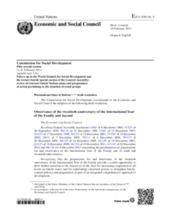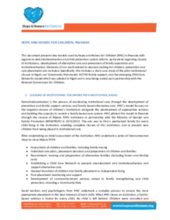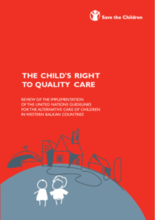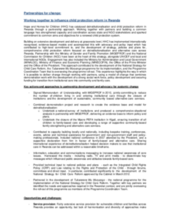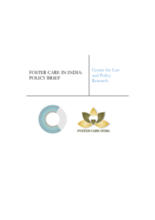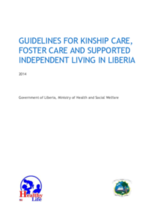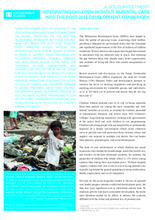Displaying 701 - 710 of 1025
The UN Commission for Social Development (CSocD) held its 52nd session in New York on the 11-21 February 2014. As part of its mandate, it held discussions in observance of the 20th Anniversary of the International Year of the Family and drafted a resolution to be adopted by the UN Economic and Social Council.
This document presents key models used by Hope and Homes for Children (HHC) in Rwanda with regards to deinstitutionalisation and child protection system reform, particularly regarding closure of institutions, development of alternative care and prevention of family separation and institutionalisation.
In this paper, Save the Children International reviews the implementation of the UN Guidelines on the Alternative Care of Children in the Western Balkan Countries of Serbia, Montenegro, and Bosnia and Herzegovina.
A short brief by Hope and Homes for Children (HHC) in Rwanda explaining strategies used in the process of taking its deinstitutionalisation pilot project and research up to policy-level advocacy.
This article reviews some of the language and conceptual issues that need to be addressed to be able to meaningfully compare differential usage of residential childcare services across national boundaries.
The Infant Mental Health Journal has published an important Special Issue on Global Research, Practice, and Policy Issues in the Care of Infants and Young Children at Risk. This article documents how between 2005 and 2013, the Government in the Republic of Georgia closed 32 large, state-run institutions housing children without adequate family care.
Infant Mental Health Journal has published an important Special Issue on Global Research, Practice, and Policy Issues in the Care of Infants and Young Children at Risk. This article documents an initiative to establish a replicable professional model that would direct the child welfare system in the Nizhny Novgorod Region away from institutional care and toward services for young children and their families that reduce the risk of institutionalization.
This policy brief reviews the legal framework for foster care in India, including an analysis of the current provisions of foster care along with the rules and schemes on foster care framed by states in India, with a focus on Delhi and Goa.
The Guidelines for Kinship Care, Foster Care and Supported Independent Living in Liberia are intended to provide harmonized national guidance for child welfare practitioners in order to improve the quality of family-based alternative care services in Liberia, particularly for children without appropriate care (CWAC).
In this paper, SOS Children’s Villages demonstrates how children who lack or are at risk of losing parental care are highly vulnerable to various forms of poverty and inequality. The paper proposes operational strategies for action as well as targets and indicators designed to monitor progress among these children.

